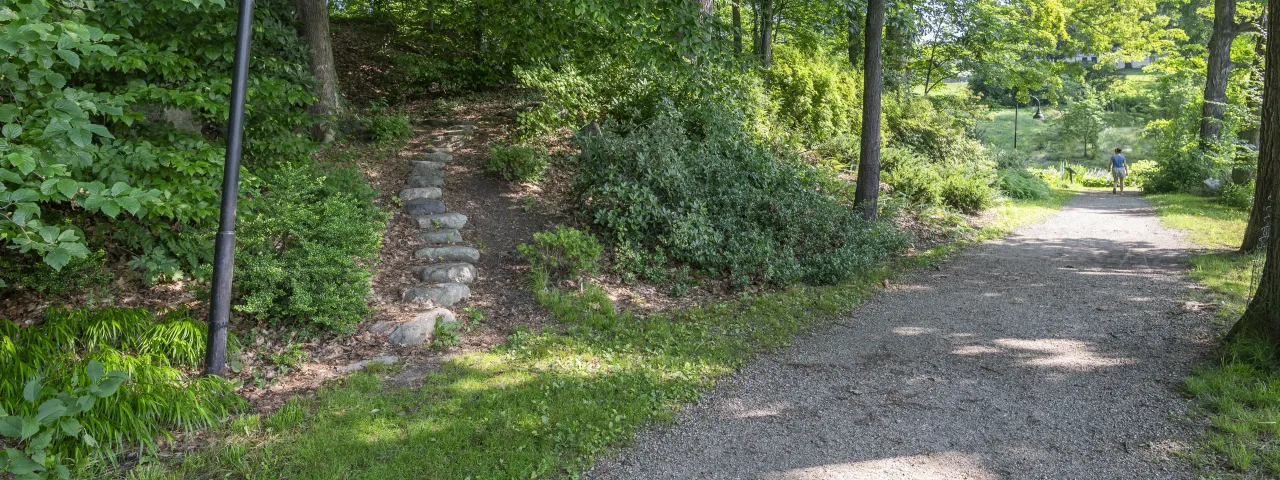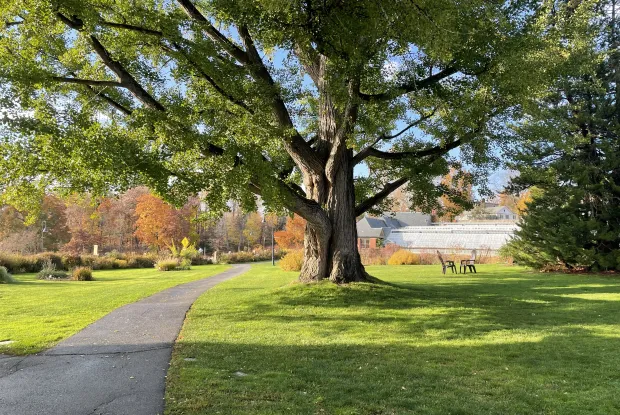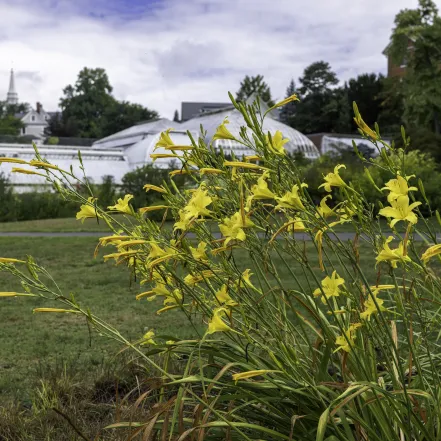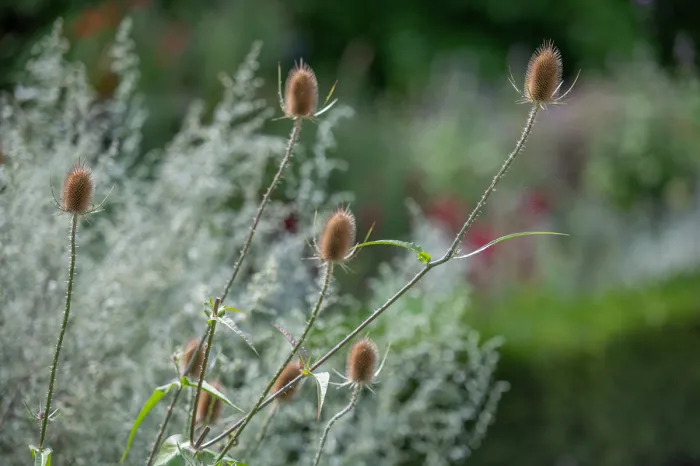
Explore
With 127 acres of arboretum, 6-acres of outdoor managed gardens and a 12,000 square foot conservatory, we invite you to explore the natural world through our extensive plant collections. Plant collections are central to what botanic gardens do and for many reasons. At the Botanic Garden of Smith College, more than 7,000 documented, labeled and mapped plants represent a broad selection of native and non-native species, ranging from cultivars of landscape plants to wild collected species with provenance that underpins our conservation efforts.
Outdoor Gardens
Our landscape contains numerous named gardens, each built to provide both a sense of place as well as tools and inspiration for learning. These spaces integrate our history with our vision for the future as a leader in conservation and education. Our gardens and the elements within them allow visitors to explore the beauty and diversity of the botanical world as well as their relationships to each other, to humanity, and to the complex living environments that they naturally occur in today. Learn more.
Campus Arboretum
No element of the botanic garden underscores the integration of our collections with the campus landscape better than the arboretum. Visitors will find that almost every planted tree, shrub and woody vine on campus has a botanic garden label that shares its identity, botanical family and provenance.
The role of botanic gardens and arboreta grows in importance as the challenges of conserving the value and resilience of the natural communities that our plants represent intensify. We look to build collections that support the natural systems that our campus is situated within and protect the genetic diversity plant populations need to thrive.
Learn more about our campus arboretum.


